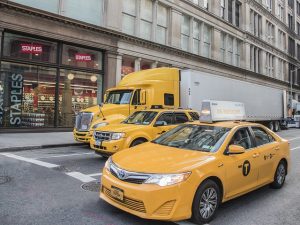Earlier this year I wrote about the coming robot storm and the studies that suggest many jobs now held by humans will soon be executed by robots. Yesterday the Guardian published an article by Stephen Hawking who was commenting on,  among other things, growing income inequality. He remarked, “The automation of factories has already decimated jobs in traditional manufacturing, and the rise of artificial intelligence is likely to extend this job destruction deep into the middle classes, with only the most caring, creative or supervisory roles remaining.”
among other things, growing income inequality. He remarked, “The automation of factories has already decimated jobs in traditional manufacturing, and the rise of artificial intelligence is likely to extend this job destruction deep into the middle classes, with only the most caring, creative or supervisory roles remaining.”
What exactly is AI and how does it differ from basic automation such as a robot working an assembly line? AI stands for Artificial Intelligence and though those words may inspire grandiose images of androids such as Star Trek’s Data, the applications for it are far less advanced but also more widespread. Automation is hardware or software that is programmed to automatically complete a task based on external stimuli. For example, a sprinkler system that automatically operates when smoke is detected or car headlights that turn on automatically. AI however not only responds to the stimuli but learns from it to make better decisions for you in the future.
Here are a few examples of AI you perhaps have not noticed.
Autonomous cars – These are perhaps the most recognizable uses of artificial intelligence today. Soon not only will our cars drive themselves by adapting to the environment around them but so too will our cabs, busses and commercial trucks.
Netflix, Hulu, Spotify – These sites don’t just allow you to watch movies or listen to music, their software algorithms makes suggestions based on your past viewing/listening choices. Think of automation as a record player changing the record, but AI will play the songs you most likely want to hear.
Fraud detection software – These programs understand your buying habits and can alert you of irregular purchases.
News writing – News outlets such as the AP use AI to write very basic news stories such as sports recaps or financial summaries.
The examples demonstrate a few ways that AI can improve our lives but also a few ways it can steal jobs, some of which may be taken sooner than later. Autonomous trucks for example may save the trucking industry millions but it will also put drivers out of jobs. The same is true for cab drivers. These aren’t the only jobs in imminent danger. According to a study on AI by McKinsey Global Institute, 64% of data collecting jobs and 69% of data processing jobs are ready for automation takeover.
The good news for most industries is that wide adoption of these changes might still be decades away but they are certainly coming. According to McKinsey’s Michael Chui, “There’s time for us to adapt. We might start to think about, can AI save the economy by increasing productivity?”
The belief has always been that new technologies create jobs, but it doesn’t create new jobs for those whose jobs have been stolen. The individual who loses his job driving a truck can’t immediately be shifted to a job writing software for that truck. That opportunity is made available to a programmer in a different industry. So yes, perhaps AI can increase productivity and give people more free time or it will take jobs from thousands and give those people a whole lot of free time!
